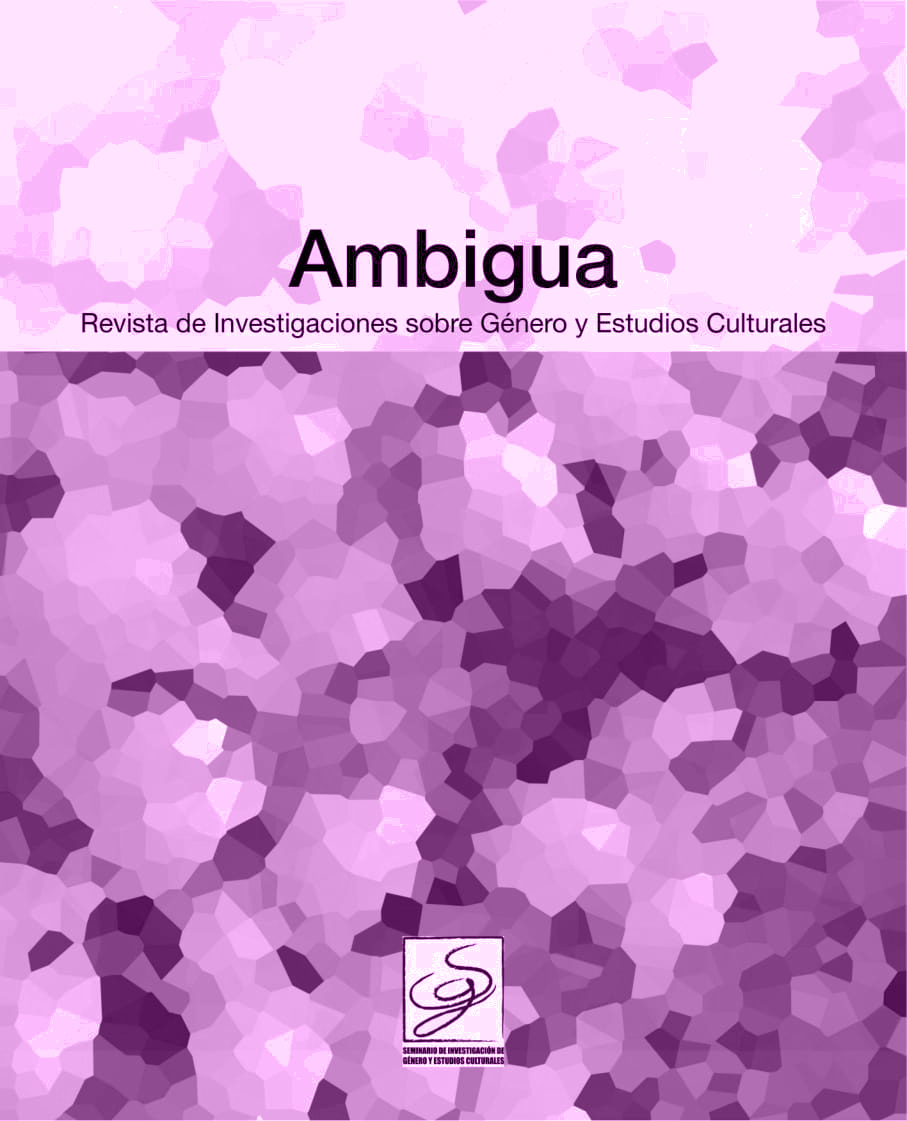Absence of resourses, widowhood in patriarcachy
a complicity between civil law and customary law
DOI:
https://doi.org/10.46661/ambigua.4931Keywords:
comparative analysis, Africa , literature , women, violence, widowhoodAbstract
This article aims to study the widowhood of women in Africa as a form of symbolic, social, domestic and sexual violence, based on African literature of spanish and french expression. It is both a factor in representing violence against widows from an artistic, cultural and literary perspective. It does not ignore the socio-cultural factors and causes of violence against women in Africa. Consequently, the literature will be called upon to dialogue around the issue of violence against widowed women and social change, that is to say between vulnerability and subversion. This dialogue involves the analysis of the novel Ekomo (2008) by the equatorial guinean writer María Nsue Angüe and Co-épouses Et Co-veuves (2015) by the central african Adrienne Yabouza. He will also be interested in their positioning in the Africain literary field in the face of sexist dichotomies and the collusion that exists between customary law and civil law, in order to write the situation of widows in Africa in a patriarchal system. The victims of violence [widowed women] are highlighted through an explicit fictionalization of socio-cultural, and political realities. This shows how, using stylistic and narrative methods, literature is a privileged tool for pushing the boundaries of gender and contributes to the understanding of a situation of violence which is concealed.
Downloads
References
AMON D’ABY, François-Joseph. Le théâtre en Côte d’Ivoire des origines à 1960 suivi de Kwao Adjoba et de la Couronne aux enchères. Abidjan : Éd. CEDA, 1988.
AUBAME, Jean-Marie. Les Beti du Gabon et d’ailleurs Tome II : Croyances, us et coutumes. Paris : Éd. L’Harmattan, 2002.
bell hooks, « La sororité : la solidarité politique entre les femmes » Black feminism, Anthologie du féminisme africain-américain, 1975-2000, traduit de l’anglais par Anne Robabel, Paris : Éd. L’Harmattan, 2008.
FRASER, Nancy. Le féminisme en mouvement. Des années 1960 à l’ère néolibérale. Traduit de l’anglais par Estelle Ferrarese. Paris : Éd. La Découverte, 2012.
KERVELLA-MANSARÉ, Yassine. Veuvage féminin et sacrifices d’animaux dans le Fouta- Djalon (Guinée). Paris : Éd. L’Harmattan, 2012.
MATHIEU, Nicole-Claude. L’anatomie politique 1 : Catégorisations et idéologie du sexe. Paris: Côté-femmes, 1991.
NSUE ANGÜE, María. Ekomo. Madrid: Éd. Sial Casa de Africa, 2008.
OBONO, Ntutumu Trifonia Melibea. Herencia de bindendee. Madrid & Viena: Ed. Ediciones en auge, 2016.
ROMITO, Patrizia. Un silence de mortes : La violence masculine occultée. Traduit de l’Italien par JULIEN, Jacqueline. Paris : Éd. Syllepse, 2006.
TABET, Paola. La grande arnaque : Sexualité des femmes et échange économico-sexuel. Traduit de l’Italien par CONTRÉRAS, Josée. Paris : Éd. L’Harmattan, 2004.
YABOUZA, Adrienne. Co-épouses Et Co-veuves, Bamako-Mali : Éd. Cauris livre, 2015.
YAOU, Régina. La révolte d’Affiba. Abidjan : Éd. Nouvelles Éditions Ivoiriennes, 1997.
Downloads
Published
How to Cite
Issue
Section
License
Copyright (c) 2020 Dawoulé Bohoussou KOUASSI

This work is licensed under a Creative Commons Attribution-NonCommercial-ShareAlike 4.0 International License.
The authors agree with the following:
1. Authors retain copyright and grant the journal right of first publication with the work simultaneously licensed under a license Attribution-NonCommercial-ShareAlike 4.0 International (CC BY-NC-SA 4.0) that allows others to share the work with an acknowledgement of the work's authorship and initial publication in this journal.
2. Authors are able to enter into separate, additional contractual arrangements for the non-exclusive distribution of the journal's published version of the work (e.g., post it to an institutional repository or publish it in a book), with an acknowledgement of its initial publication in this journal.
3. Authors are permitted and encouraged to post their work online (e.g., in institutional repositories or on their website) prior to and during the submission process, as it can lead to productive exchanges, as well as earlier and greater citation of published work (See The Effect of Open Access).









